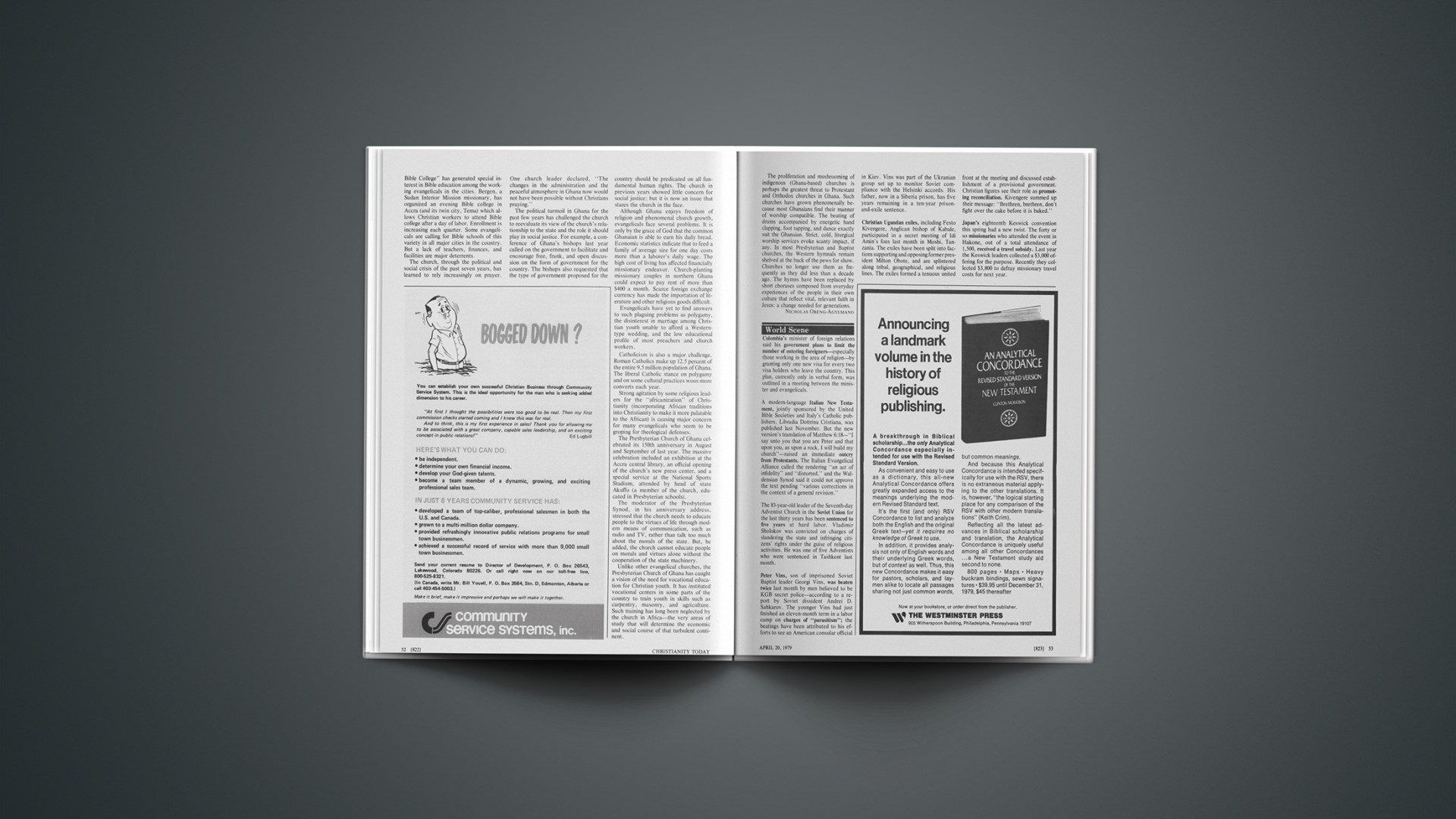Colombia’s minister of foreign relations said his government plans to limit the number of entering foreigners—especially those working in the area of religion—by granting only one new visa for every two visa holders who leave the country. This plan, currently only in verbal form, was outlined in a meeting between the minister and evangelicals.
A Modern-language Italian New Testament, jointly sponsored by the United Bible Societies and Italy’s Catholic publishers, Libradia Dottrina Cristiana, was published last November. But the new version’s translation of Matthew 6:18—“I say unto you that you are Peter and that upon you, as upon a rock, I will build my church”—raised an immediate outcry from Protestants. The Italian Evangelical Alliance called the rendering “an act of infidelity” and “distorted,” and the Waldensian Synod said it could not approve the text pending “various corrections in the context of a general revision.”
The 83-year-old leader of the Seventh-day Adventist Church in the Soviet Union for the last thirty years has been sentenced to five years at hard labor. Vladimir Sholokov was convicted on charges of slandering the state and infringing citizens’ rights under the guise of religious activities. He was one of five Adventists who were sentenced in Tashkent last month.
Peter Vins, son of imprisoned Soviet Baptist leader Georgi Vins, was beaten twice last month by men believed to be KGB secret police—according to a report by Soviet dissident Andrei D. Sahkarov. The younger Vins had just finished an eleven-month term in a labor camp on charges of “parasitism”; the beatings have been attributed to his efforts to see an American consular official in Kiev. Vins was part of the Ukranian group set up to monitor Soviet compliance with the Helsinki accords. His father, now in a Siberia prison, has five years remaining in a ten-year prison- and-exile sentence.
Christian Ugandan exiles, including Festo Kivengere, Anglican bishop of Kabale, participated in a secret meeting of Idi Amin’s foes last month in Moshi, Tanzania. The exiles have been split into factions supporting and opposing former president Milton Obote, and are splintered along tribal, geographical, and religious lines. The exiles formed a tenuous united front at the meeting and discussed establishment of a provisional government. Christian figures see their role as promoting reconciliation. Kivengere summed up their message: “Brethren, brethren, don’t fight over the cake before it is baked.”
Japan’s eighteenth Keswick convention this spring had a new twist. The forty or so missionaries who attended the event in Hakone, out of a total attendance of 1,500, received a travel subsidy. Last year the Keswick leaders collected a $3,000 offering for the purpose. Recently they collected $3,800 to defray missionary travel costs for next year.










